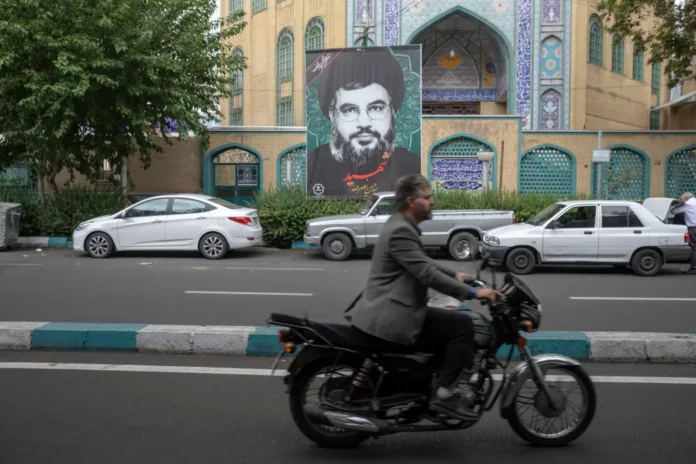In recent months, the world has been watching with growing concern as tensions between Iran and the United States have risen to new heights. The assassination of Iranian General Qasem Soleimani by the US in January 2020 has only added fuel to the fire, sparking fears of a potential full-scale conflict between the two countries.
However, amid all the speculation and uncertainty, experts are predicting a different outcome. It is believed that despite its strong rhetoric, Iran is unlikely to escalate the conflict and will instead focus on rebuilding its proxy army, Hezbollah, and maintaining its influence in the region.
The decision to not escalate the conflict is a strategic one for Iran. It is no secret that the Islamic Republic is facing economic challenges, with crippling sanctions imposed by the US damaging its already struggling economy. In the midst of this, Iran cannot afford to engage in a full-scale war with the US, which would only worsen its financial situation.
Additionally, Iran is well aware of the military might of the US and its allies. Engaging in a direct confrontation with them would be a futile and dangerous move that could potentially result in severe casualties for the Iranian military and civilians.
Moreover, it is important to note that Iran has been steadily increasing its influence in the region through its network of proxies, including Hezbollah in Lebanon, Houthis in Yemen, and various militias in Iraq and Syria. These groups serve as Iran’s means of exerting its influence in the region without direct involvement of its military.
This network of proxies is crucial for Iran and has been carefully cultivated by General Soleimani over the years. Losing this network would greatly diminish Iran’s regional power and jeopardize its ultimate goal of becoming a dominant player in the Middle East.
Therefore, it is in Iran’s best interest to focus on rebuilding Hezbollah and maintaining its proxies’ operations instead of engaging in a direct conflict with the US. By doing so, Iran can continue to project its power in the region and maintain its status as a key player in the Middle East.
Experts also believe that Iran will use this opportunity to enhance its military capabilities, particularly in the realm of cyber warfare. In recent years, Iran has shown its proficiency in this area, launching cyber attacks on US government agencies and corporations.
With the US increasing its military presence in the region and surveillance capabilities, Iran may turn to cyber warfare as a means of retaliation, causing disruption and damage without the risk of direct confrontation.
Furthermore, Iran may also resort to unconventional methods such as terrorist attacks and targeted assassinations to retaliate against the US and its allies. These tactics have been utilized by Iran in the past and could be used as a means of sending a message while avoiding direct conflict.
Some experts also believe that Iran may seek to exploit the already strained relationship between the US and its allies in the region, particularly Saudi Arabia. By targeting Saudi Arabia’s oil facilities or interests, Iran could further disrupt the region and put pressure on the US to de-escalate the conflict.
In conclusion, while tensions between Iran and the US may continue to remain high, it is unlikely that it will escalate into a full-scale war. Iran’s focus is on preserving its power and influence in the region, and it will do so through careful strategic planning and utilizing its network of proxies.
Nevertheless, it is crucial for all parties involved to exercise caution and refrain from actions that could lead to further escalation. Diplomatic efforts must be made to de-escalate the situation and find a peaceful resolution. With the stakes so high, it is imperative that cooler heads prevail to prevent any further turmoil in the already volatile region. As the world watches and hopes for a peaceful resolution, it is essential to remember that war should never be the answer and that all conflicts can and should be resolved through peaceful means.

